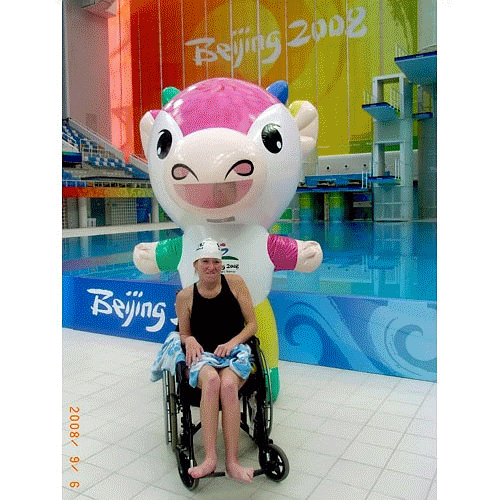Latest News Archive
Please select Category, Year, and then Month to display items
06 April 2018
Photo Rulanzen Martin
 From the left: Dr Thulisile Mphambukeli, leader of the BRICS research team that is exploring the political economy of water and food security, and her research partner, Dr Victor Okorie.
From the left: Dr Thulisile Mphambukeli, leader of the BRICS research team that is exploring the political economy of water and food security, and her research partner, Dr Victor Okorie.
A Brazil, Russia, India, China and South Africa (BRICS) delegation is to hold the 10th Annual BRICS Summit in the last week of May 2018 in Johannesburg. Dr Thulisile Mphambukeli, leader of the University of the Free State (UFS) research team alongside Dr Victor Okorie from the Department of Urban and Regional Planning, in collaboration with Prof Lere Amusan of North-West University, will ensure that water and food security is a prominent feature on the gathering’s agenda.
First, the project titled: “Exploring the political economy of water and food security nexus in BRICS and Africa” will debut at the National Institute for the Humanities and Social Sciences BRICS Think Tank Forum”.
According to Dr Mphambukeli, the key to water security is attitudinal change by means of education and conscientisation. This, she is adamant about, holds the potential to drive behavioural adjustments in the way society interacts with water.
Genetic and social approaches
Dr Okorie asserts that if strides towards reducing the demand for water were to be made, research efforts should be geared towards effecting changes at DNA level. Meaning we need to explore waterwise ways that enable crops and animals to thrive optimally.
The project also looks at social dimensions of water such as flushing a toilet. “Research activities on redesigning toilets, especially the urinal, where more than nine litres of water are used to flush less than one cubic centimetre of urine, are timely in the context of managing water and the food nexus crises,” said Dr Okorie.
Combining the genetic and social approaches would allow us to produce more with a smaller water footprint. This can be made possible by implementing precision agriculture which is about estimating and applying exact quantities of water and nutrients needed for the production of crops or the raising of livestock.
Paradigm shifting policies
Prof Amusan said the team intended to propose functional solutions that take the quality of water into consideration. Equitable production and distribution of water depends on endorsing policies of co-production between citizens, governments and the public sector. BRICS member states mutually consider water and food security as an issue of paramount significance, hence its feature on this prestigious summit’s agenda.
Sarah, our own champion
2008-11-05
 |
| Sarah Shannon at the Paralympic Games in Beijing |
Sarah Shannon, a second-year student in the Postgraduate Certificate in Education, has been involved in disability sport on national level for the past 12 years. Sarah has cerebral palsy.
In 1996 she participated at the South African National Championships for the physically disabled for the first time, entering for several sporting codes and winning five gold medals. In swimming she participates in the S3 class together with other swimmers that have comparable abilities to hers.
In 1997 she decided to focus on swimming competitively. She participated in her first national championships for swimming that year. After that (1998) she represented South Africa on international level at the International Paralympic Committee’s (IPC) Swimming World Championships in New Zealand where she ended 4th in the 50m backstroke and 7th in both the 50m and 100m freestyle in her class.
In 1999 she represented South Africa in Johannesburg at the 7th All Africa Games and won a silver medal for the 50m freestyle and a bronze medal for the 100m freestyle.
In 2000 she was part of the South African team at the Sydney Paralympic Games where she reached the finals and finished 7th in the 50m backstroke and 8th in the 50m freestyle. Northern-KwaZulu-Natal also awarded her the Junior Sportswoman of the Year award in 2001. In 2002 she participated at the South African Senior National swimming championships for KwaZulu-Natal in the multi-disability category.
In 2005 she completed the Midmar Mile. She also represented South Africa at the world championships for athletes with cerebral palsy in Boston in the United States of America. She won two gold medals for respectively the 50m freestyle and the 50m backstroke and two silver medals in the 100m and 200m freestyle. She was also nominated to represent South Africa as athlete’s representative on the world committee of CPISRA (Cerebral Palsy International Sports and Recreation Association). In this year Sarah also received the KwaZulu-Natal Premier’s Sportswoman with a disability award of the year.
In 2006 she qualified for the IPC world championships but could not attend.
In 2007 she represented South Africa once more at the Visa Paralympic World Cup in Manchester in the United Kingdom where she broke the South African record in the 50m backstroke, finishing 7th in the 50m freestyle and 6th in the 50m backstroke.
She was also part of the very successful Team South Africa to the Paralympic Games in Beijing. She reached the finals in both the 50m backstroke and 50m freestyle. She finished 7th in the 50m freestyle and 6th in the 50m backstroke in personal best times for both events. She has been participating in the able bodied South African National Swimming Championships since 2002. She is currently ranked 2nd in the world for short course items and 11th for the long course items. She is truly our best swimmer in the S3 class.